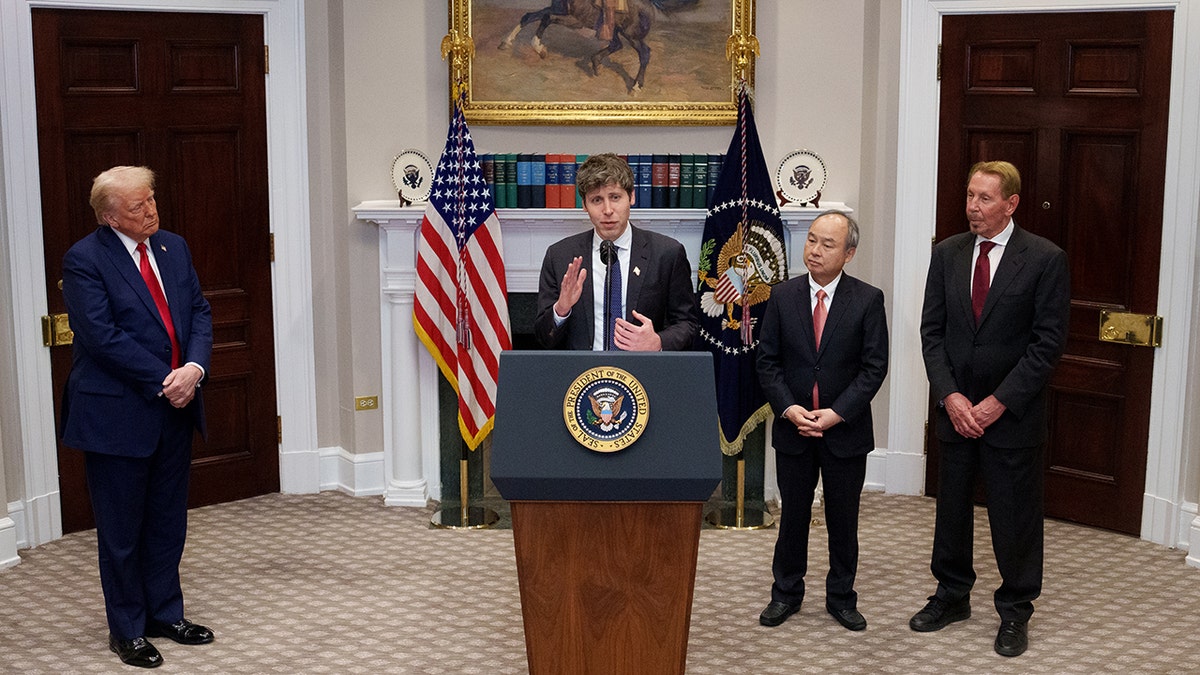Left-leaning actress Natasha Lyonne leading efforts to lobby Trump admin on AI regulation

NEWYou can now listen to Fox News articles!
Left-leaning actress Natasha Lyonne is at the forefront of Hollywood efforts to get the government to address creators’ concerns about AI infringing on their work.
“My primary interest is that people get paid for their life’s work,” Lyonne said in a report in the Wall Street Journal.
The story detailed Lyonne’s efforts to lobby Hollywood heavyweights to sign onto her letter to the Trump administration in March, urging against the loosening of regulations around AI, which they deem a potential threat to their intellectual property without proper protections in place.
The WSJ noted the White House’s pending AI action plan “could influence how U.S. copyright rules are applied to training large language models,” with tech companies like Google and OpenAI saying they need such models to keep theirs up to date and compete globally with rivals like China.
REPUBLICANS SCRAP DEAL IN ‘BIG, BEAUTIFUL BILL’ TO LOWER RESTRICTIONS ON STATES’ AI REGULATIONS
The Hollywood letter said the companies “are arguing for a special government exemption so they can freely exploit America’s creative and knowledge industries, despite their substantial revenues and available funds. There is no reason to weaken or eliminate the copyright protections that have helped America flourish.”
Lyonne and more than 400 others, including such figures as Paul McCartney, Ron Howard and Ben Stiller, signed the letter.
Lyonne, known for her roles in the series “Poker Face” and “Russian Doll,” is a partner in a new studio called Asteria, which describes itself as “an artist-led generative AI film and animation studio powered by the first clean and ethical AI model.”
Like many figures in Hollywood, Lyonne is not a fan of the president, endorsing Kamala Harris in 2024 and posting in a now-deleted X post in 2020 about turning Texas blue to defeat Trump.
Earlier this year, she told The Hollywood Reporter she was concerned for marginalized communities, saying of Trump, “It’s very weird to have like a showbiz guy in charge, is surreal. I’m actually pretty horrified by how strategic and effective this whole thing has been.”
FEDERAL AI POWER GRAB COULD END STATE PROTECTIONS FOR KIDS AND WORKERS

She added she was concerned that 12-year-olds wouldn’t be able to get abortions, later clarifying that she was referring to young victims of rape or incest who may be forced to give birth.
The WSJ reported that Trump officials were unsure whether they’d take any action on the AI front, due to the complexities involved and having to take one side over another.
There have been mixed rulings on the subject as well, with fair use arguments favoring companies like Meta and Anthropic in two cases last month because the copyrighted material used to train their AI models was sufficiently transformed, the Wall Street Journal reported. But others have favored copyright holders, depending on the context.
OpenAI and Google put forth their own submissions earlier this year to the White House Office of Science and Technology asking their respective companies to be able to train their models on copyrighted material.
“The federal government can both secure Americans’ freedom to learn from AI and avoid forfeiting our AI lead to the PRC [People’s Republic of China] by preserving American AI models’ ability to learn from copyrighted material,” OpenAI’s letter states.
SCARLETT JOHANSSON TAKES AIM AT COMPANIES USING HER LIKENESS, VOICE IN AI

Google’s letter states, “Balanced copyright rules, such as fair use and text-and-data mining exceptions, have been critical to enabling AI systems to learn from prior knowledge and publicly available data, unlocking scientific and social advances. These exceptions allow for the use of copyrighted, publicly available material for AI training without significantly impacting rightsholders and avoid often highly unpredictable, imbalanced, and lengthy negotiations with data holders during model development or scientific experimentation.”
This week, a deal that had been reached between Sens. Marsha Blackburn, R-Tenn., and Ted Cruz, R-Texas, over how states can regulate artificial intelligence was pulled from President Donald Trump’s “big, beautiful” bill.
The collapsed agreement would have required states seeking to access hundreds of millions of dollars in AI infrastructure funding in the “big, beautiful” bill to refrain from adopting new regulations on the technology for five years, a compromise down from the original 10 years.
The White House didn’t respond to a request for comment. Fox News Digital also reached out to Lyonne’s representatives, as well as Google and OpenAI, for comment.
Fox News Digital’s Elizabeth Stanton, Landon Mion and Kelly Phares contributed to this report.
Read the full article here









